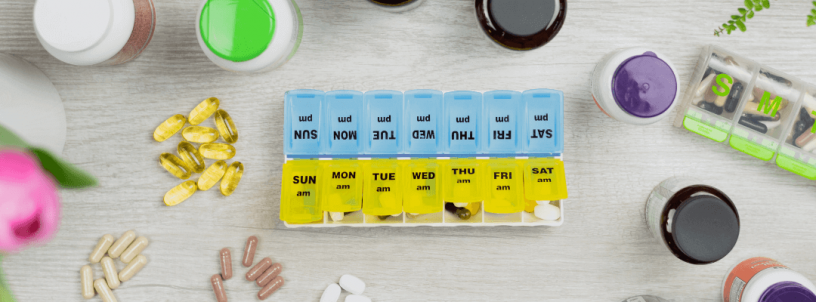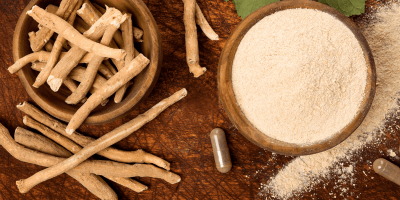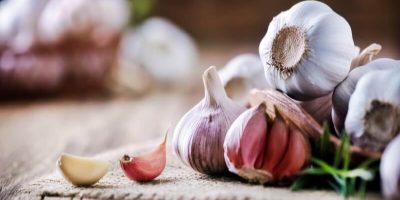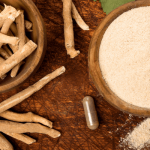Choosing and Maintaining Your Supplement Routine
What are supplements?
They’re like mini feel-good boosters. Many people add them to their daily routine to kick their everyday health into gear. Why? Because supplements—dietary products that are packed with goodies like essential nutrients, vitamins, minerals, and sometimes herbs or botanicals—are excellent for filling in those nutritional gaps in your diet or providing a bit of extra support for your mind and body.
But where do you begin? With so many options available, choosing the right one for you can be daunting. Not to mention building a regimen for yourself that you can feel good about. We totally get it.
The good news—we’ve got you covered. No need to fret! Keep reading to get into the nitty-gritty of choosing the right supplement for you, wisely and carefully, and how you can stick to a supplement routine that will actually give you results.
Informed Choices Are Always Best: Know Your Stuff
You don’t have to forego quality to keep to your budget. In fact, we strongly advise against that. The best thing to do when choosing a supplement is to do your own research first. This can help you to really understand what you’re putting into your body, and whether or not the product is truly effective. You should also always consult with a trusted healthcare provider for the proper guidance. We love informed decision-making!
For the newbies, start out with a high-quality Multivitamin (especially if you’re still a little ‘iffy’ on the whole dietary supplementation thing). Multivitamins are popular, and for a reason. These daily supplements pack a mighty punch for your general well-being—we’re talking balanced daily wellness, energy boosts, and overall all-one-health. [12, 13]
If you don’t want to get on the multivitamin train just yet, you can still try out Probiotics. These friendly little guys (a.k.a. Live bacteria and yeasts) are your gut’s best friend—they work double-time to help normal microflora in the human body thrive. Probiotics are commonly used for gut support, digestion, and immune health. Much like your daily intake of vitamins and minerals, Probiotics are essential for promoting not just gastrointestinal health, but your overall health. [1]
Unbreakable Habits Have to Start Somewhere
And they begin with habit stacking. Ever heard of it? Habit stacking is the easiest way to make sure you’re taking your supplements regularly. Just add them to your existing daily routine, and you’ll be good to go!
Here’s how to do it:
- Pick a time of day when you already have a regular routine, such as brushing your teeth, making coffee, or eating breakfast.
- Add your supplements to that routine. For example, you could take your vitamins after you brush your teeth in the morning or take your fish oil supplement after you eat breakfast.
That’s it! You’ve now habit-stacked your supplement regimen.
Need some examples? No problem:
- Morning: After I brush my teeth, I will take my vitamins and probiotics.
- Midday: After I eat lunch, I will take my magnesium supplement.
- Evening: After I make dinner, I will take my fish oil supplement.
- Before bed: Before I go to bed, I will take my melatonin supplement.
You’ll Need A Secret Weapon For Success: The 3 Cs
Commitment, consistency, and care—the 3 Cs to your supplement success. What do we mean? Take a look:
Commitment: Stay committed to your supplement regimen, no matter what! It’s the key to reaping all the benefits.
Consistency: Commitment is one thing, but consistency is another. Take your supplements every day (even when you’ve hit the snooze button a few too many times), and you’ll be on your way to a better you.
Care: Take care of yourself and your supplements! Store them properly and take them at the right time of day to get the most out of them.
To maintain your 3 Cs to supplement success, you’ll need a secret weapon. Enter: Subscribe And Save for the win. This helpful option keeps you accountable in your health journey, and we love that for you. Plus, it’ll save you time AND money. Make sure the subscription service you choose has all the goods:
- 10% OFF all Subscribe & Save
- Free Shipping
- Priority on available stock
- Ability to cancel and rejoin at any time
- A straight-forward, no-games 100% Satisfaction Guarantee
Out of Sight, Out of Mind: A Big No-No
You’ve heard it once, you’ve heard it a million more times—out of sight, out of mind. While that might have a nice ring to it, it’s not the mentality you’ll want to have in order to stick to a supplement routine. Rather, you should do the opposite—in sight and in your mind. Store your supplements somewhere safe and visible so you don’t forget to take them.
Easy access is your goal. Place your supplements on a counter tray or shelf next to your coffee maker or toothbrush.
Supplement stashes are a thing. For instance, you could keep a bottle of vitamins in your car so you can take them on the go.
Alarms aren’t just for getting to work on time. Set a reminder on your phone to take your supplements at a certain time each day.
Organization is a game-changer. If you have multiple supplements, organize them in a pill organizer so it’s easy to see what you need to take.
What do we mean by “somewhere safe?” Things like humidity and direct sunlight can affect the potency of your supplements, so we recommend avoiding areas like these entirely.
Supplements 101: A Beginner’s Guide
Before starting a new supplement regimen, ask yourself these questions:
- What are my nutritional needs? Am I lacking in certain areas of my diet?
- What are my health and wellness goals?
- How will I stay accountable?
- Is my lifestyle healthy? Do I get enough water, sleep, exercise, and time for myself?
- Have I talked to my doctor about taking new supplements?
Once you have a good understanding of your needs and goals, you can start researching supplements. Here are a few suggestions for beginners:
- Turmeric Curcumin: Supports joint, body, and cognitive health. [14, 15]
- Collagen Peptides: Supports strong hair, skin, and nails, and helps with athletic recovery.[2]
- Organic Garlic: Encourages full-body immunity and heart health.[3,4]
- Ashwagandha: A natural mood enhancer that alleviates symptoms of stress and anxiety.[5]
- Maca Root: Well known for its potential to benefit sexual health.[6]
- Berberine: Supports healthy cholesterol levels. [7]
- Quercetin: Has therapeutic benefits for cardiovascular health, cholesterol health, and respiratory function.[8,9]
- Vitamin K2 & D3: Work together to support bone and heart health.[10]
- Resveratrol: Supports cardiovascular health and provides antioxidants.[11]
Note that supplements are not a replacement for a healthy diet and lifestyle. Make sure to eat a variety of nutritious foods, get regular exercise, and get enough sleep. If you have any concerns about taking supplements, talk to your doctor.











Leave a Reply